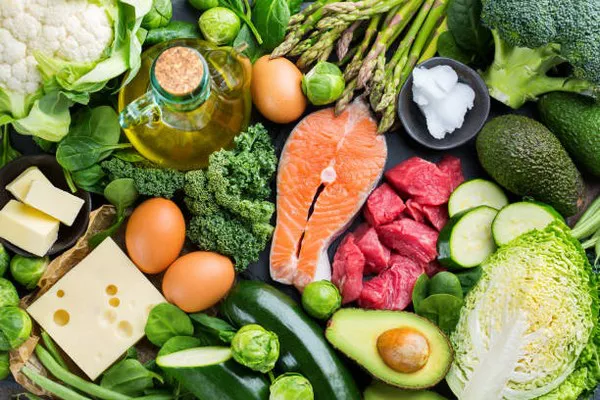When it comes to weight management, the debate over what contributes more to weight gain—carbohydrates or calories—has been ongoing. Understanding this can help you make more informed decisions about your diet and fitness plan. This article will explore both aspects in detail and offer practical suggestions for achieving your fitness and weight loss goals.
Understanding Weight Gain
Weight gain occurs when you consume more energy (calories) than your body expends. The excess energy is stored as fat. This fundamental principle underpins the discussions about carbs and calories.
Calories: The Basic Concept
A calorie is a unit of energy. Your body needs a certain amount of calories each day to maintain its current weight. This number can vary based on factors like age, gender, weight, height, and activity level. Consuming more calories than you burn leads to weight gain, while consuming fewer leads to weight loss.
Carbohydrates: A Closer Look
Carbohydrates are one of the three macronutrients, alongside proteins and fats. They provide energy and are found in foods like grains, fruits, vegetables, and legumes. Carbs are broken down into glucose (sugar), which is used for energy or stored as fat if not used immediately.
Types of Carbohydrates
Simple Carbs: These are sugars found in foods like candy, soda, and pastries. They are quickly absorbed into the bloodstream, causing rapid spikes in blood sugar levels.
Complex Carbs: These are found in whole grains, vegetables, and legumes. They are digested more slowly, providing a more sustained release of energy.
Calories vs. Carbs: The Debate
The relationship between carbs and calories in terms of weight gain can be complex. While carbs themselves are not necessarily fattening, the total caloric intake is a crucial factor. For example, consuming 500 calories from carbohydrates will have the same impact on weight gain as consuming 500 calories from fats or proteins.
Calories in Carbohydrates
1 gram of carbohydrate provides 4 calories. Therefore, a high-carb diet can contribute to weight gain if it leads to a caloric surplus. However, this does not mean that carbs are inherently bad. The source of the carbs and the overall balance of your diet play significant roles.
Carbs and Insulin
Carbohydrates affect insulin levels. Insulin is a hormone that helps regulate blood sugar and fat storage. Eating large amounts of simple carbs can cause insulin resistance over time, potentially leading to weight gain. However, complex carbs have a less pronounced effect on insulin.
Balancing Your Diet
To manage weight effectively, focus on a balanced diet that includes all macronutrients in appropriate proportions. A well-rounded diet should include:
Proteins: Essential for muscle repair and growth. Sources include lean meats, fish, eggs, and plant-based proteins.
Fats: Necessary for hormone production and overall health. Opt for healthy fats from sources like avocados, nuts, and olive oil.
Carbohydrates: Choose complex carbs over simple sugars. Include whole grains, fruits, and vegetables.
Practical Tips for Weight Management
Monitor Caloric Intake
Keep track of the calories you consume and compare this with the calories you burn through physical activity. Many apps and tools are available to help with this.
Choose Nutrient-Dense Foods
Focus on foods that provide essential nutrients without excessive calories. For example, vegetables, fruits, and lean proteins should be staples in your diet.
Control Portion Sizes
Be mindful of portion sizes to avoid overeating. Using smaller plates and measuring your food can help.
Avoid Sugary Foods and Drinks
Reduce your intake of sugary snacks and beverages. Opt for whole foods and limit processed items.
Stay Hydrated
Drinking plenty of water can help manage hunger and support overall health.
Exercise Regularly
Engage in regular physical activity to burn calories and maintain muscle mass. Aim for a mix of aerobic exercises (like walking or running) and strength training.
See Also: What Shake Is Best After Workout
Sample Meal Plan for Weight Management
Here’s an example of a balanced meal plan to help with weight management:
Breakfast
- Oatmeal topped with fresh berries and a sprinkle of nuts
- A side of Greek yogurt
Lunch
- Grilled chicken salad with a variety of colorful vegetables
- A whole-grain roll
Snack
- A piece of fruit (e.g., apple or banana) with a small handful of almonds
Dinner
- Baked salmon with quinoa and steamed broccoli
- A side salad with olive oil and vinegar dressing
Snack (if needed)
- A small serving of cottage cheese or a few carrot sticks with hummus
Conclusion
Both carbohydrates and calories play roles in weight management. While carbs can contribute to calorie intake, it’s the total caloric balance that ultimately affects weight. By focusing on a balanced diet and healthy lifestyle habits, you can manage your weight effectively. Remember, the quality of your diet and the balance of macronutrients are as important as the quantity of calories consumed.


